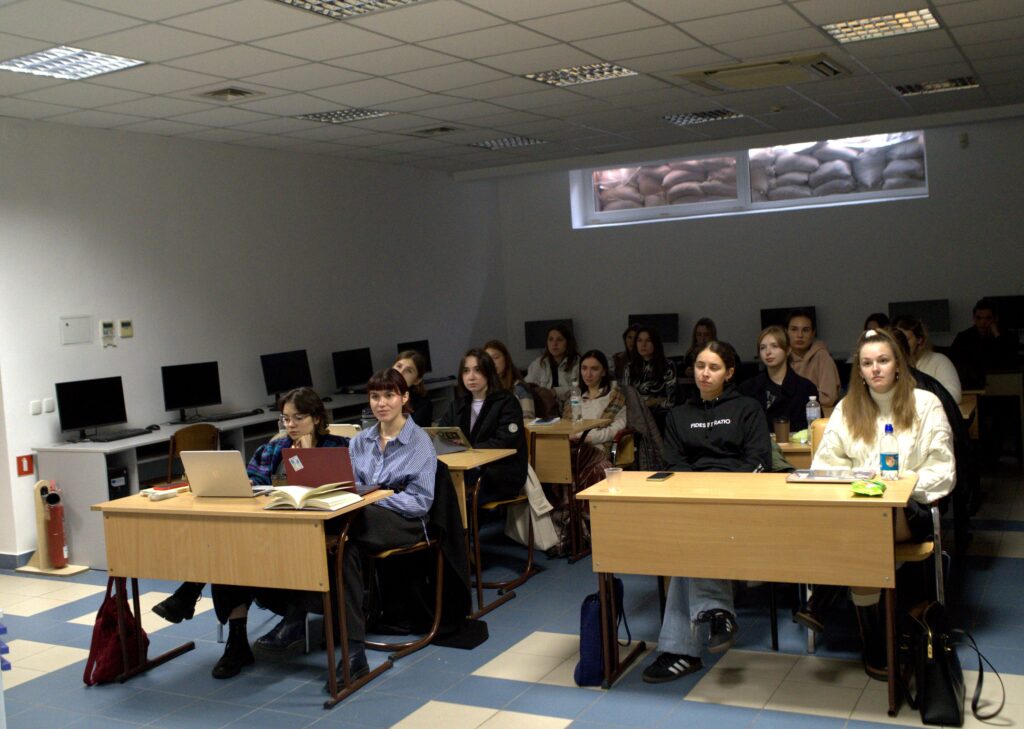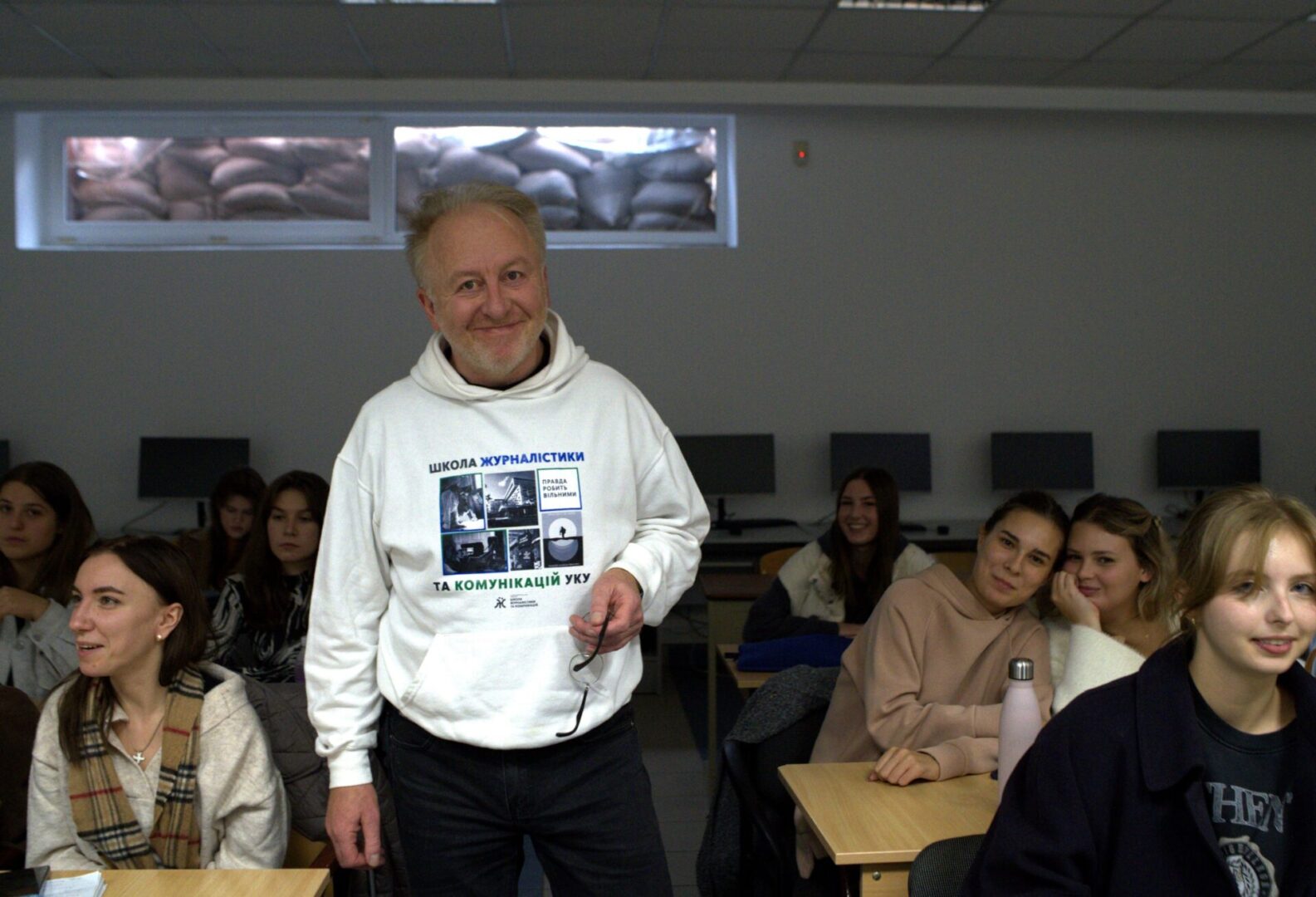I addressed a colleague’s journalism class last week — a routine (and enjoyable) aspect of academic life. Two things about this guest shot were anything but routine. One was the time. The other was the place.
Class began at 6:30 a.m. — here in the Eastern United States. Where the students were, it was seven hours later.
The place was an ordinary college classroom, except something was blocking the windows. It took me a second to realize I was looking at sandbags.
The sandbags were in the event of an attack. The class was on the campus of Ukrainian Catholic University in the city of Lviv in western Ukraine.
I was joining them on Zoom at the invitation of Professor Borys Potyatynyk. Borys chaired the journalism department at Ivan Franko National University when I taught there near the end of a relatively calm period in Ukraine’s turbulent history.
It was Borys and his wife, Uliana, who picked me up at the airport when I arrived in Lviv in 2012, they who drove me to my apartment and took me to a big-box store so I could buy groceries and a phone. And it was Borys and Uliana who became my first friends in a place where I knew no one and could say little more than hello/goodbye/please/thank you/coffee/beer.
We’ve been in sporadic contact over the years, more frequently since the Russians invaded Ukraine in February 2022. When Borys invited me to talk to his class, I readily agreed (I’m an early riser), but asked one thing in return: When I was done talking about the challenges to journalism’s authority in the age of social media, AI, deep fakes, etc., I wanted to interview the students about the challenges of living and studying in a nation at war.
So about those sandbags: The students shrugged. By now, nearly 1,000 days into the war, they were used to them.
Imagine.
I couldn’t help recalling a meeting I attended a few weeks ago where representatives from Counseling and Psychological Services (CAPS) told my colleagues and me to be on the lookout for students undergoing “sociopolitical stress.”
I don’t want to minimize the anxiety American students — and we, their elders — feel as Election Day approaches — not to mention all the other perturbations, great and small, that ruffle the late adolescent psyche in the age of social media. But hey, at least we’re not worrying — yet — about shrapnel or shattered glass or our classrooms collapsing on us during a bombardment.
Even if Borys’s students were worried, they didn’t feel like they could complain. The beautiful city of Lviv has been hit by rockets a few times, but comparing the situation in western Ukraine to the ongoing devastation in the east is like comparing occasional showers to a hurricane.

One class member — it was a little hard to hear so I didn’t catch any of their names — said she’s working with refugees from the fighting in the east.
“It’s tough to hear their stories,” she told me. “If I could, I would shelter them all in my apartment in Lviv.”
I then asked the question I have posed to my Ukrainian friends in State College: Would they trade land for peace; let Putin have the chunk of eastern Ukraine that he most covets if he would agree to withdraw his troops?
I understand how unpalatable such an outcome is. It’s galling to give in to a bully. But as the conflict grinds toward its third anniversary with no end in sight, surely these kids are feeling war-weary.
Keith Gessen, writing in The New Yorker, cites a poll that found that the number of Ukrainians who favor peace talks with Putin has risen from 23% in May 2023 to 44% this past summer.
A woman in Kyiv named Aksinya Kurina told Gessen that Ukrainians were committing “collective suicide” and that her country was “running out of Ukrainians.”
“Some people would rather die than be humiliated,” she said. “But there are also mothers who want to raise their children and live.”
If any of Borys’s students were ready to negotiate so that they could someday raise their children and live, none would say so. For one thing, they don’t trust Putin (or Trump, whom they see as Putin’s pal). Sooner or later, one student said, Putin will attack again.
Another student invoked Western Europe in 1938, when Britain and France hoped Hitler would be satisfied with lopping off a piece of Czechoslovakia.
A third brought up Pearl Harbor: When you were attacked, she said to me, you fought back.
There were 33 students in Borys’s class. All but one were female. I asked Borys why the disparity. Many male students, he told me, have enlisted.



